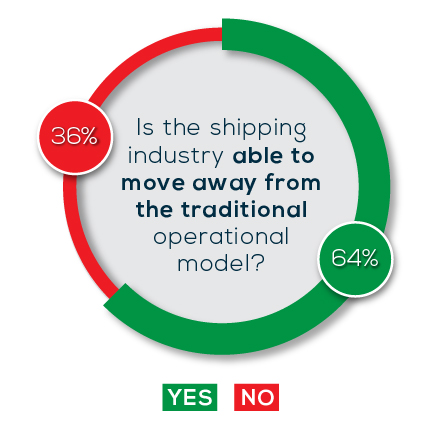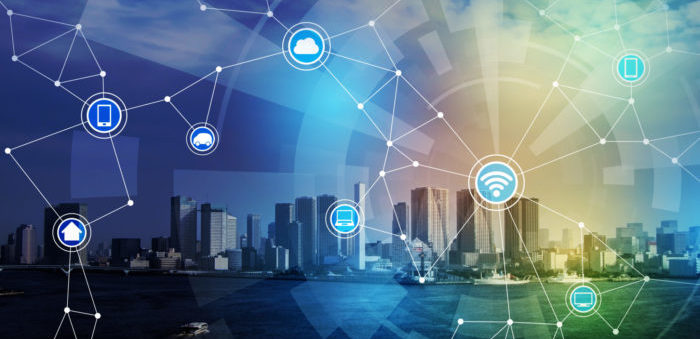Well over the half of the participants (64%) in a quick SAFETY4SEA poll concerning shipping industry’s transition from the traditional operational model to a modernized one replied that industry is ready to move away from tradition, while 36% believe that the industry should not switch to a different operating model.

SAFETY4SEA poll’s purpose was formed under the hypothesis that there is need to accelerate not only the transition to news technologies, but also the transition to a different mindset within the context of the 4th industrial revolution; an era that other industries seem to adopt quickly while for shipping industry is challenging enough. But, how can maritime industry change its business model to be a candidate for a smarter digital future?
This is as disruptive as changing from sail to stream. But instead of doing it in a space of 40 years, we are asked to do it in a space of 10. This is also as disruptive as the introduction of the container which revolutionized bulk goods shipping.
In year 2018 shipping operates still in a traditional model, ships’ crews still file noon reports or update the paper charts onboard. Of course, traditional operating model is not necessarily bad, however resisting innovation tends to cause deliberate difficulties and delays.
Reasons WHY
- We stick to bureaucracy and archaic structure
Resisting innovation is probably the effect of bureaucracy in shipping industry which is said to block the radical improvements requiring load of paperwork and operating according to an archaic structure. Certainly, next generation is not interested in the bureaucratic way that shipping industry behaves today. Unfortunately, each new set of rules usually comes with a load of administration to complete, logs, forms and checklists.
We do not want seafarers to consume their time just mechanically completing papers on board but seafarers that clearly understand the need of implementation of certain regulation which apparently affects their wellbeing on board.
Andreas Nicolaou, Dromon Bureau of Shipping, said in an exclusive interview with SAFETY4SEA
- We focus on other parts of digitalization, not on setting a different mindset
We are all aware that the 4th industrial revolution is marked by emerging technology breakthroughs in fields, including
- robotics,
- artificial intelligence (AI),
- nanotechnology,
- quantum computing,
- biotechnology,
- the Internet of Things (IoT),
- the Industrial Internet of Things (IIoT),
- fifth-generation wireless technologies (5G),
- additive manufacturing/3D printing
- fully autonomous ships
Shipping industry is already putting much efforts in embracing the aforesaid technologies but lacks in focusing on sustainability mainly regarding next generations:
– meet millennials and Gen X expectations
– help in maintaining work-life balance and/or
– accept more women in the industry both in leadership roles at offices or onboard
 Besides, it is said that having a woman on a company’s Board of Directors will increase profit by 26%.
Besides, it is said that having a woman on a company’s Board of Directors will increase profit by 26%.
Despite how fast the technology in our interconnected world evolves and how fast we adopt it, the Industry 4.0 is ultimately about people. According to the World Economic Forum there is a skillset towards success in 2020:
- Complex Problem Solving
- Critical Thinking
- Creativity
- People Management
- Coordinating with others
- Emotional Intelligence
- Judgement and decision making
- Service Orientation
- Negotiation
- Cognitive Flexibility































































Dear Sirs,
the skillset item 1-10 are old qualities in the shipping world, but only with new words !